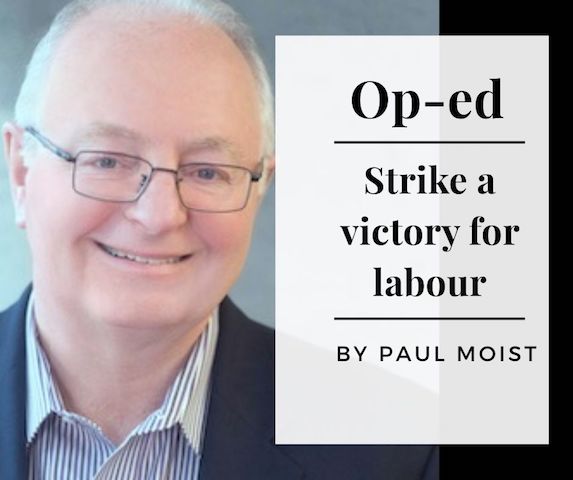
Read the WFP op-ed written by MFUR President Paul Moist “Strike a victory for labour”. See below:
Labour day marks the end of summer, the beginning of the school year, and a public holiday to celebrate the accomplishments of Canadian workers.
For workers in the federal sector, regulated by the Canada Labour Code, the past two years have seen repeated government action to terminate the legal right to strike, a right affirmed in an epic 2015 Supreme Court decision which extended Charter protection.
Beginning with longshore workers in British Columbia in 2023 and extending to WestJet maintenance staff, rail workers, and Quebec longshore workers, the past 24 months have seen the federal Liberals use of an obscure provision of the Canada Labour Code, Section 107, to avoid Parliament, by way of ministerial directives to the Canada Industrial Relations Board (CIRB), to terminate legal strikes by ordering workers back to work.
The two most recent high-profile federal disputes ended by ministerial fiat, involving postal workers and flight attendants, have garnered widespread media coverage. Both reveal the Liberals continued practice of obliterating workers right to strike in response to requests from employers. In these latter two instances, it was incredible to witness both the hubris and incompetence of key players on both the government and employer side of the table.
In late 2024 postal workers struck for 32 days, when the federal government stepped in, instructing the CIRB to end the strike. They also launched an inquiry into the future of the postal service, requiring a report by May 15 this year. One week later, postal workers had their right to strike restored.
Postal workers opted to impose an overtime ban and to call their employer back to the bargaining table. The federal Jobs Minister, Patty Hajdu, urged the parties to come up with a settlement, failing this, to agree to terms of referral to binding arbitration. Talks again stalled, the postal workers said they would agree to arbitration, but Canada Post said no, calling upon the minister to force postal workers to vote on their final offer to the union.
The minister complied and unsurprisingly postal workers accepted their union’s recommendation to vote down the offer by a two-to-one margin. The negotiations remain unresolved.
Flight attendants at Air Canada, coming off of a 10-year deal that saw them lose ground to inflation, were motivated to seek catch-up, like pilots achieved in 2024 through an historic settlement on the eve of announced plans to strike.
The 10,000 flight attendants, members of the Canadian Union of Public Employees (CUPE) also sought to settle the archaic practice of their not being paid for work prior to or after flights. They historically only received pay from the moment the door closed, and the aircraft began moving and pay ended when the flight landed and parked at the gate. All preflight and postflight work was not compensated.
Talks stalled, the workers voted 99.7 per cent in favour of strike action to back their contract demands and on Aug. 16 exercised their legal right to withdraw their labour, shutting down Air Canada. Some 12 hours into the strike, acting upon a request from the employer, Hajdu instructed the CIRB to end the strike and impose final binding arbitration.
Here is where things became interesting.
CUPE said they would remain on the picket line and would only accept a negotiated deal. Air Canada filed an unfair labour practice and the CIRB ordered CUPE members back to work. The workers remained on strike and chaos broke out with the 130,000 passengers the airline transports each day and having their flights cancelled.
Air Canada’s CEO, Michael Rousseau, was asked what his plans were for passengers in the event of a strike, incredibly he stated his plan was to have government invoke Section 107, thereby ending the strike. The labour movement has long argued that employers will never bargain in good faith if they feel they have the government at their beck and call to end strikes.
Rousseau’s candor revealed at best incompetence or at worst, incredible hubris, neither ought to be acceptable to the shareholders he serves.
Two days into the walkout minister Hajdu announced plans for a “federal probe” into the issue of unpaid work in the airline sector, stating she found this “disturbing.” One wonders where she has been for the last three years as CUPE openly campaigned on this issue. She looked weak and ill-informed and may well have earned a trip to the Liberal backbenches.
With public opinion solidly with the flight attendants, Air Canada returned (I expect government ordered them) to the bargaining table and a negotiated agreement was achieved in eight hours with the assistance of a mediator. Unpaid work for flight attendants would end.
A victory for flight attendants and for the labour movement as a whole. One hopes that the federal government and employers take note, worker solidarity and public support for fairness are a powerful combination.
Happy Labour Day!
Paul Moist is a retired labour leader. He is president of the Manitoba Federation of Union Retirees.